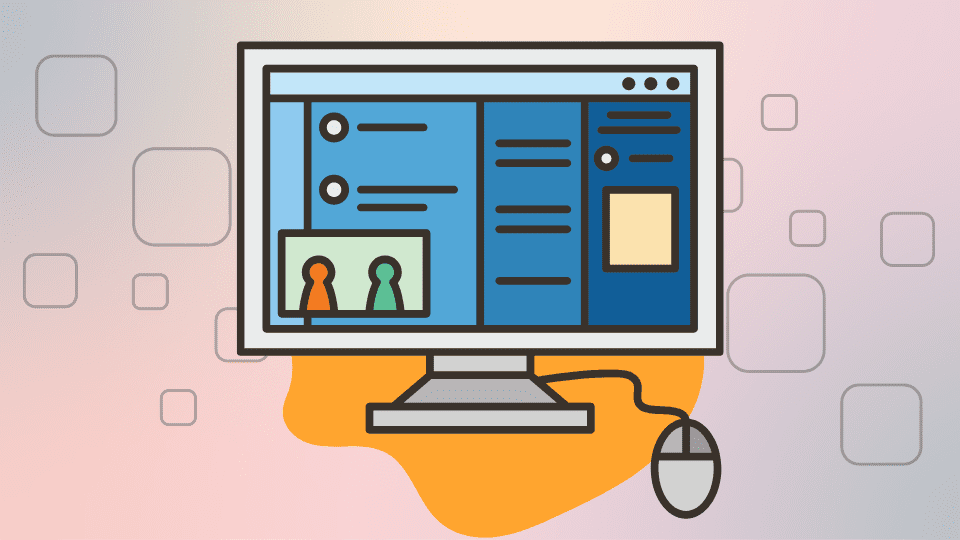Are you tired of the daily commute and the rigid 9-5 office routine? Dreaming of a flexible schedule and the freedom to work from the comfort of your own home?
It’s time to start working from home and embark on a remote career that offers endless possibilities.
But where do you begin? How can you navigate the world of remote work and find success?
- Start Working from Home Self-Assessment
- Freelancer Market Research
- Build Your Brand as a Remote Worker
- Set Up Your Remote Workspace
- Legal and Financial Setup of your Freelancing Work
- Create a Portfolio of your Remote Work
- Set Your Freelancing Rates
- Create Profiles on Freelancing Platforms
- Start Networking as a Remote Worker
- Pitch Your Services
- Deliver High-Quality Work
- Seek Feedback and Improve
- Manage Your Finances
- Expand Your Client Base
- Stay Organized and Motivated
In this comprehensive guide, I will show you step-by-step how to kickstart your remote career and unlock the true potential of working remotely. From self-assessment to market research, building your brand to setting up your workspace, I will cover all the essential aspects of starting a remote career. By the end of this guide, you’ll have the knowledge and tools to confidently carve your own path and enjoy the flexibility and fulfillment of a remote career.

So, are you ready to leave the traditional office behind and embrace the freedom and possibilities of working remotely? Let’s dive in and discover the ultimate guide to starting your remote career.

Start Working from Home Self-Assessment
Know your skills as a remote worker
Before embarking on a remote career, it is crucial to conduct a thorough self-assessment. This process allows you to identify your unique skills, strengths, and interests, which will ultimately guide the services you can offer as a freelancer.
To begin, take the time to reflect on your past experiences and pinpoint areas where you excel. Consider your professional and personal achievements, as well as any specialized knowledge or expertise you possess. This introspective analysis will help you uncover your key skills and talents.
Furthermore, it is essential to evaluate your strengths and weaknesses. Understanding what you excel at and where you may need improvement will enable you to capitalize on your strengths and develop strategies to address any areas of weakness.
As you assess your skills and strengths, also take the time to consider your interests. What subjects or industries ignite your passion? What type of work energizes and motivates you? Identifying your interests will help you align your freelancing services with the areas that truly inspire you.
Once you have completed your self-assessment, compile a list of potential freelancer services based on your skills, strengths, and interests. This could include writing, graphic design, programming, digital marketing, and many other in-demand services in today’s freelancing industry.
Remember, self-assessment is an ongoing process. As you gain more experience and expand your skill set, you may discover new strengths and interests. Continuously reassessing your abilities and aligning them with market demands will help you thrive in your remote career.

Freelancer Market Research
Before embarking on your remote career journey, it is crucial to conduct thorough market research to set yourself up for success. Market research allows you to gain valuable insights and understand the demand for your skills in the freelancing industry.
Explore Freelancing Platforms
A great way to start your market research is by exploring popular freelancing platforms such as Upwork, Freelancer, Fiverr, and others. These platforms serve as virtual marketplaces where clients post projects and freelancers like you can offer your services and start working from home. By browsing through these platforms, you can uncover the types of projects that are in high demand, the competition you may face, and the potential opportunities available in your field.
Analyze Competitor Profiles
Another important aspect of market research is analyzing competitor profiles. By studying the profiles of other freelancers in your niche, you can gain valuable insights into various factors such as pricing, services offered, and client feedback. This information can help you understand the competitive landscape and position yourself strategically to stand out from the crowd.
By combining your research on freelancing platforms with a thorough analysis of competitor profiles, you can gain a comprehensive understanding of the market and make informed decisions that will set you up for success in your remote career.

Build Your Brand as a Remote Worker
Creating a strong personal brand is essential for establishing credibility and standing out in the competitive remote career industry. To build your brand, you need to craft a professional online presence that showcases your work, skills, and experience. One effective way to do this is by creating a personal website or portfolio.
Creating a website or portfolio
A personal website or portfolio serves as a virtual hub where potential clients can learn more about you and your services. It provides a platform to showcase your previous projects, highlight your expertise, and demonstrate your professionalism. Your website or portfolio should be well-designed, visually appealing, and easy to navigate, reflecting the level of professionalism that you bring to your work.
When creating your personal website or portfolio, make sure to include relevant keywords and phrases that highlight your skills and expertise. This will help improve the search engine optimization (SEO) of your website, making it easier for potential clients to find you online.
In addition to creating a personal website or portfolio, it’s important to develop a strong personal brand. This involves defining your unique value proposition and positioning yourself as an expert in your field. Think about what sets you apart from others and communicate this effectively through your online presence, branding elements, and messaging.
Consistency is key when it comes to building a personal brand. Use the same fonts, color scheme, and design elements across all your online platforms to create a cohesive and recognizable brand identity. Remember to align your personal brand with the values and qualities that you want to be known for, ensuring that it reflects your expertise and professionalism.
By building a strong personal brand and creating a professional online presence, you will establish yourself as a trustworthy and credible remote professional. This will attract potential clients and help you stand out in the industry, ultimately leading to greater opportunities and success.

Set Up Your Remote Workspace
Creating a productive workspace is essential for maximizing your productivity and focus when working remotely. Here are some tips to help you set up an effective workspace:
Create a Dedicated Workspace from Home
Designate a specific area in your home that will be solely dedicated to your work. This could be a spare room, a quiet corner, or even a customized desk in your living area. The key is to choose a space where you can work without distractions.
Minimize Distractions
Take steps to minimize distractions in your workspace. Stay away from high-traffic areas, turn off notifications on your phone, and communicate with your family or roommates about your need for uninterrupted work time. Consider using noise-canceling headphones to block out external noise if necessary.
Organize Your Workspace
Keep your workspace clean and organized to enhance focus and efficiency so you can start working from home. Invest in storage solutions like shelves, drawers, or file organizers to keep your work materials and supplies neatly arranged. Use cable management tools to keep your wires and cables organized and out of the way.
Ensure Necessary Equipment and Software
Make sure you have all the essential equipment and software needed for your freelancing work. This may include a reliable computer or laptop, a comfortable ergonomic chair, a stable internet connection, and any specific software or tools required for your field or industry.
Ergonomics Matter
Pay attention to ergonomics to avoid discomfort and potential health issues. Adjust your chair and desk height to maintain good posture, position your monitor at eye level to reduce strain on your neck, and use a keyboard and mouse that provide proper support for your wrists and hands.
By setting up a dedicated and well-organized workspace, you can optimize your productivity, minimize distractions, and create an environment that fosters focus and success in your remote career.

Legal and Financial Setup of your Freelancing Work
Determine Your Legal Structure
Before start working from home, it’s important to determine the legal structure of your business. This decision will depend on factors such as your country’s regulations and the type of business you plan to operate. Common legal structures include sole proprietorship, LLC, and corporation.
Register Your Business
Once you have identified the appropriate legal structure, you may need to register your business with the relevant authorities. This ensures that your business operates legally and allows you to access certain benefits, such as tax deductions and legal protection.
Set Up a Separate Bank Account
To maintain financial clarity and organization, it’s crucial to set up a separate bank account for your business transactions. This account will help you track income, expenses, and other financial aspects of your remote career. It also provides a professional image to clients and simplifies tax filings.
Consult with a Tax Advisor
To ensure that you meet your tax obligations as a freelancer, consider consulting with a tax advisor. They can provide valuable insights on tax regulations, deductions, and deadlines. This guidance will help you stay compliant with tax laws while maximizing your financial efficiency.

Create a Portfolio of your Remote Work
Your portfolio is your opportunity to showcase your talent, skills, and expertise to potential clients. It is an essential tool that can provide a comprehensive overview of your abilities and give clients a glimpse into your previous work. By presenting your best work samples in a visually appealing and organized manner, you can demonstrate your capabilities and stand out from the competition.
Showcase your best work samples
In your portfolio, strive to include a diverse range of projects that demonstrate the breadth and depth of your skills. Choose your best work samples and present them in a way that reflects your professionalism and attention to detail. Whether you are a graphic designer, writer, programmer, or digital marketer, make sure to highlight projects that exemplify your expertise and captivate potential clients.
Tailor your portfolio to highlight relevant projects
When creating your portfolio, it is important to consider the services you offer and tailor your selection of projects accordingly. Choose work samples that align with the specific skills and services you want to focus on. By showcasing projects that are relevant to the services you offer, you can demonstrate your capabilities in a way that resonates with potential clients and increases your chances of securing new opportunities.
Remember, your portfolio should reflect your uniqueness and creativity while providing a clear representation of your skills and expertise. Make sure to update and refine it regularly to showcase your latest and best work samples. With a well-crafted portfolio, you can make a lasting impression on potential clients and increase your chances of success in your remote career.

Set Your Freelancing Rates
In order to determine the pricing for your freelancing services, it is essential to conduct thorough research and consider various factors. By understanding industry standards and competitor rates, you can set competitive pricing that reflects the value you provide.
Researching industry standards and competitor rates allows you to gain insight into the current market trends and pricing structures. Analyzing the rates charged by your competitors can help you position yourself strategically and attract potential clients.
However, it’s important to note that pricing should not solely be based on what your competitors are charging. Consider your own skills, experience, and expertise when determining your rates. Take into account the unique value you bring to your clients and the high-quality work you deliver.
Experience plays a crucial role in pricing. As you gain more experience and build a strong reputation, you can incrementally increase your rates. Clients are often willing to pay more for freelancers who have a proven track record of delivering exceptional results.
When setting your rates, it’s also important to consider the value you provide to your clients. Think about the unique solutions you offer, your ability to meet deadlines, and the results you consistently deliver. Pricing should align with the value you provide and reflect the return on investment that clients can expect.
By conducting research, considering your experience and skills, and understanding the value you provide, you can set competitive pricing that positions you well in the market. Remember, pricing is not set in stone, and it’s essential to regularly evaluate and adjust your rates as you grow in your remote career.

Create Profiles on Freelancing Platforms
As you embark on your remote career journey, one of the crucial steps is to create compelling profiles on freelancing platforms that align with your skills. These platforms, such as Upwork, Freelancer, and Fiverr, provide a vast pool of opportunities for freelancers to connect with clients and secure projects.
To get started, sign up for an account on these freelancing platforms, ensuring that you provide accurate and up-to-date information about your professional background and expertise. This is your chance to showcase your skills, experience, and accomplishments, so be sure to highlight your strengths and capabilities.
Optimize your profiles by strategically incorporating relevant keywords throughout your profile descriptions and service offerings. This will help potential clients find you when searching for specific freelancing services. For example, if you’re a graphic designer, ensure that your profile includes keywords like “graphic design,” “logo design,” and “branding.”
In addition to keywords, it’s essential to craft a professional bio that captures the attention of potential clients. Your bio should succinctly describe your expertise, accomplishments, and the value you can provide to clients. Aim to strike a balance between professionalism and showcasing your personality to make a memorable impression.
Remember, your profile on freelancing platforms is often the first point of contact between you and potential clients. So, invest time and effort in creating compelling profiles that stand out from the competition and make a lasting impression. With optimized profiles and a professional bio, you’ll increase your chances of attracting clients and securing rewarding freelance projects.

Start Networking as a Remote Worker
To build a successful remote career, it’s crucial to establish a strong professional network. By connecting with like-minded individuals in your industry, you can tap into valuable resources, gain insights, and even find potential clients. Utilizing effective networking strategies can open doors to new opportunities and collaborations.
Join Online Communities, Forums, and Social Media Groups
One of the best ways to expand your network is by joining online communities, forums, and social media groups related to your industry. These platforms provide a space for professionals to exchange knowledge, discuss industry trends, and seek advice. Active participation in these communities allows you to connect with potential clients and fellow professionals, creating valuable relationships that can propel your career forward.
Attend Virtual Networking Events and Webinars
Virtual networking events and webinars have gained popularity in recent years, offering a convenient and effective way to expand your professional network. These events provide opportunities to connect with industry experts, thought leaders, and potential clients. Make sure to actively engage in discussions, ask insightful questions, and share your expertise to make a lasting impression.
By leveraging these networking strategies, you can position yourself as a knowledgeable and respected professional in your field. Remember, networking is not just about making connections, but also about nurturing relationships. Continuously engage with your network, provide value, and support others to build meaningful connections that benefit both parties.

Pitch Your Services
When it comes to establishing yourself as a remote professional, pitching your services effectively is crucial to landing clients and securing projects. Craft personalized pitches and proposals that not only showcase your skills and expertise but also align perfectly with the needs of your potential clients. By tailoring your pitch to their specific requirements, you can demonstrate that you understand their goals and challenges, making it more likely that they will choose you as their go-to freelancer.
Start by thoroughly researching your target clients and understanding their industry, objectives, and pain points. This information will allow you to create a compelling pitch that speaks directly to their needs. Make sure to highlight your unique selling points and clearly articulate how your skills and experience align with the client’s goals.
When crafting your personalized pitches and proposals, keep in mind that clients are looking for solutions to their problems. Showcase the value you can provide and how your expertise can help them achieve their desired outcomes. Use persuasive language to convey your passion and dedication, along with specific examples and success stories from your portfolio to build trust and credibility.
Remember to keep your pitches concise and engaging, making it easy for potential clients to quickly grasp the benefits of working with you. Use a professional and friendly tone, and customize each pitch to reflect the client’s branding, industry, and any relevant details you have gathered during your research.
Finally, follow up on your pitches and proposals to demonstrate your enthusiasm and commitment. This step shows that you value their time and are genuinely interested in forging a successful partnership.
By mastering the art of personalized pitches and proposals, you can make a strong impression on potential clients and increase your chances of securing exciting projects that align perfectly with your skills and expertise.

Deliver High-Quality Work
Once you secure a project, it’s essential to prioritize timely delivery and consistently produce high-quality work to build a positive reputation in the remote professional world. Meeting deadlines and exceeding client expectations demonstrates effective communication and professionalism, which are key factors in establishing trust and long-term client relationships.
Timely Delivery for Client Satisfaction
One of the hallmarks of a remote professional is the ability to deliver work on time, if not ahead of schedule. Meeting timely delivery commitments showcases your commitment to professionalism and reliability. Start by carefully reviewing project requirements and assessing the time needed for each task. Effectively manage your schedule and set realistic deadlines to avoid rushing through tasks, compromising the quality of your work, and potentially damaging your reputation.
It’s important to communicate openly and honestly with clients if unforeseen circumstances arise that may delay the progress or completion of a project. Being transparent about any potential delays and providing regular updates fosters effective communication and allows the client to adjust their expectations accordingly.
Maintaining a High Standard of Work
Producing high-quality work is crucial for establishing a positive reputation as a remote professional. Strive for excellence in every project by thoroughly understanding client requirements, asking clarifying questions, and actively seeking feedback throughout the process. Take the time to review and edit your work to ensure accuracy, clarity, and a polished final product.
Embrace a growth mindset by continuously investing in your professional development. Stay updated on industry trends, new technologies, and best practices. Seeking opportunities to expand your knowledge and skills enables you to deliver cutting-edge work that exceeds client expectations, setting you apart from competitors in the remote work arena.
Effective Communication for Project Success
Clear and effective communication with clients is vital for project success. From initial discussions to final deliverables, maintain open lines of communication to ensure alignment with client expectations. Be proactive in asking questions, seeking clarification, and providing status updates on project progress. Regularly check-in with clients to address any concerns or potential issues before they escalate.
Utilize various communication channels that are convenient for both you and your clients, such as email, instant messaging, and video calls. Regardless of the communication method used, it’s essential to maintain a professional and respectful tone to foster positive working relationships.
Remember, delivering high-quality work requires a combination of timely delivery, attention to detail, and effective communication. By consistently striving for excellence, you will cultivate a positive reputation as a remote professional and position yourself for long-term success in your career.

Seek Feedback and Improve
Request feedback from clients after completing projects to understand areas for improvement.
I believe that seeking feedback from clients is crucial for continuous improvement as a remote professional. After completing a project, it’s important to reach out to clients and request their feedback. By doing so, I can gain valuable insights into my performance, identify areas for improvement, and ensure that I am meeting the expectations of my clients.
Receiving client feedback allows me to understand what I am doing well and where I can enhance my skills and capabilities. It provides me with valuable guidance on how to enhance my work quality, communication, and overall client satisfaction. With this feedback, I can take the necessary steps to continuously improve and deliver outstanding results.
Continuously update your skills and stay updated with industry trends to remain competitive.
To remain competitive in the remote career industry, it is essential to continuously update my skills and stay updated with industry trends. The nature of remote work is constantly evolving, and staying ahead of the curve is essential to provide value to clients and remain competitive in the market.
I actively seek opportunities to expand my knowledge and skills through courses, workshops, and certifications. By staying updated with the latest industry trends and technological advancements, I can offer cutting-edge solutions to my clients and stay at the forefront of my field.
Continuous learning and skill development not only enable me to deliver high-quality work but also enhance my competitiveness in the industry. By staying updated, I can offer innovative solutions, adapt to changing client needs, and position myself as a valuable asset in the remote career market.

Manage Your Finances
As a remote professional, it’s important to have a solid grasp on your finances to ensure financial stability and success. By effectively managing your finances, you can track your income, expenses, and invoices, while also setting aside a portion of your earnings for taxes and savings.
Keep track of your income, expenses, and invoices using accounting software or spreadsheets.
Keeping detailed records of your income, expenses, and invoices is crucial for maintaining financial organization. Utilize accounting software or spreadsheets to easily track and monitor your financial transactions. This will enable you to have a clear understanding of your revenue streams and expenditures, helping you make informed decisions when it comes to managing your finances.
Set aside a portion of your earnings for taxes and savings.
Being proactive in setting aside a portion of your earnings for taxes and savings is essential for long-term financial stability. Paying taxes as a remote professional can be different from traditional employment, so it’s advisable to consult with a tax advisor to understand your obligations and ensure compliance. Additionally, saving a portion of your earnings can provide a financial safety net and allow you to invest in your future.
By effectively managing your finances, you can maintain control over your income and expenses, optimize your tax savings, and ensure overall financial health. Taking the time to track your income, expenses, and invoices, while also setting aside funds for taxes and savings, will contribute to your long-term success as a remote professional.

Expand Your Client Base
As a remote professional, it’s essential to continually seek new opportunities to expand your client base. By actively engaging in networking, referrals, and effective marketing efforts, you can open doors to a broader range of potential clients.
Embrace the Power of Networking
Networking is a powerful tool that can help you connect with like-minded professionals and potential clients. Engage in online communities, forums, and social media groups relevant to your industry. By participating in discussions, sharing valuable insights, and building relationships, you can establish yourself as an expert in your field and attract new clients. Additionally, attending virtual networking events and webinars can provide valuable opportunities to meet industry professionals and expand your professional network.
Utilize the Power of Referrals
Referrals are a valuable source of new clients for remote professionals. Satisfied clients are more likely to recommend your services to their peers and colleagues. Therefore, delivering exceptional work and providing an outstanding client experience are crucial. Ensure clear communication, meet deadlines, and always strive to exceed client expectations. By consistently delivering high-quality results, you increase your chances of receiving referrals from satisfied clients and expanding your client base.
Implement Effective Marketing Strategies
Effective marketing can significantly contribute to client expansion. Develop a comprehensive marketing plan that aligns with your target audience and services. Utilize digital marketing tactics such as search engine optimization (SEO) to increase your online visibility and attract potential clients. Engage in content marketing by creating valuable and informative blog posts, articles, or videos that demonstrate your expertise. Leverage social media platforms to showcase your work, engage with your audience, and promote your services. By implementing a tailored marketing strategy, you can reach a broader audience and attract clients from various industries.
Diversify Your Services and Target New Industries
Consider diversifying your services or targeting new industries to expand your client base. Analyze the current market trends and identify areas where your skills can be applied. By offering a broader range of services, you increase your appeal to potential clients who may require a combination of skills. Additionally, targeting new industries allows you to tap into previously untapped markets and reach a wider audience. Research these industries to understand their needs and requirements, then tailor your messaging and portfolio to showcase how your skills align with their specific needs.
Actively seeking new clients through networking, referrals, and targeted marketing efforts, along with diversifying your services and targeting new industries, will help you expand your client base and unlock new opportunities as a remote professional. With a proactive mindset and a strategic approach, you can continue to grow your business and thrive in the dynamic world of remote work.

Stay Organized and Motivated
Use Productivity Tools and Techniques to Manage Your Time Effectively
As a remote professional, staying organized and managing your time effectively is crucial for maintaining productivity. Utilize a variety of productivity tools and techniques to streamline your workflow and ensure you make the most of your working hours. Consider using project management platforms such as Trello or Asana to create task lists, set deadlines, and collaborate with clients and team members. These tools can help you prioritize your work and stay on track, even when juggling multiple projects.
In addition to project management tools, explore time-tracking software like Harvest or Toggl to monitor how you spend your time. By logging your tasks and activities, you can identify where you may be losing valuable time and make necessary adjustments to improve efficiency. Time-blocking techniques can also be helpful in creating dedicated blocks of time for specific tasks, minimizing distractions, and ensuring focused work periods.
Set Goals and Milestones to Track Your Progress and Stay Motivated
Setting clear goals and milestones is essential for staying motivated and measuring your progress as a freelancer. Begin by establishing both short-term and long-term goals that align with your career aspirations. Whether it’s landing a certain number of clients, increasing your income, or expanding your skill set, having specific targets gives you something to strive for.
Break down your goals into smaller milestones and create a plan of action to achieve them. This approach not only provides a roadmap for success but also allows you to celebrate your achievements along the way, keeping motivation high. Consider utilizing a goal-tracking system, such as a bullet journal or digital tools like Google Sheets or Evernote, to monitor your progress and stay accountable to yourself.
Remember that staying organized and motivated is a continuous process. Explore different productivity techniques and find what works best for you. Regularly assess your goals and adjust them as needed to reflect your evolving freelancing journey. With the right tools, mindset, and determination, you can stay organized and motivated to thrive in your remote career.




